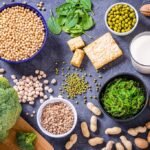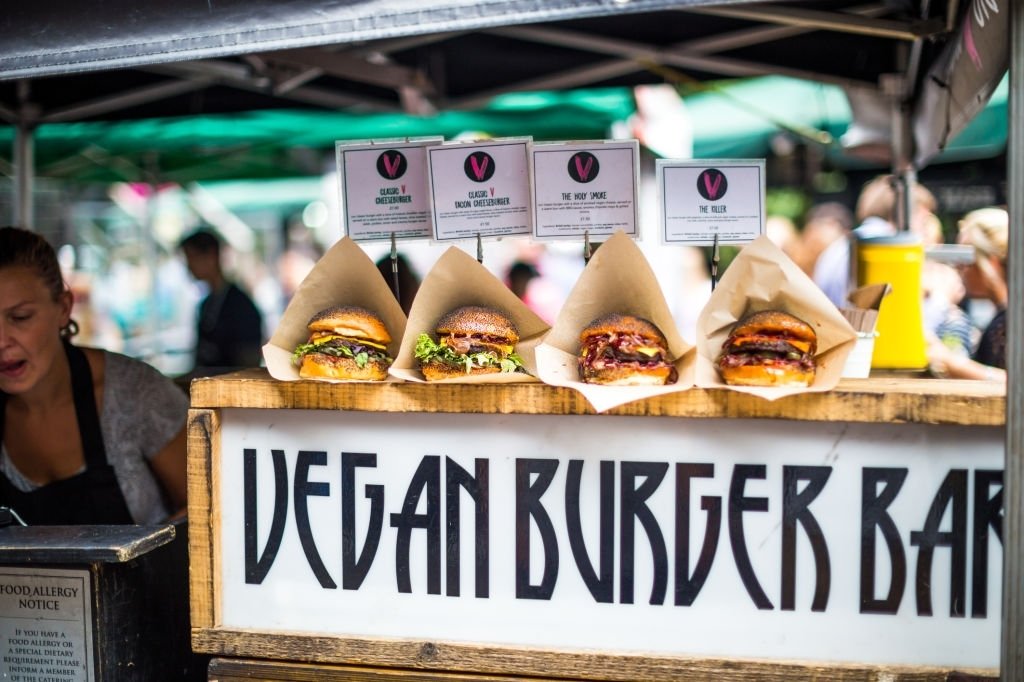Veganism is a lifestyle that has been gaining popularity in recent years. People choose to become vegan for various reasons, such as ethical, environmental, and health concerns. This way of life can also be followed during pregnancy, but it is essential to be aware of the possible challenges and nutritional needs during this critical period. In this article, we will provide you with all the information you need to know about veganism and pregnancy.
The Benefits of a Vegan Pregnancy
A vegan diet can offer numerous health benefits to pregnant women and their unborn children.
Some of them include:
- Lower risk of hypertension and preeclampsia: A balanced vegan diet contains less saturated fat and cholesterol than non-vegan diets, which can help reduce the risk of developing high blood pressure during pregnancy. High blood pressure is associated with an increased risk of preterm birth, low birth weight, and other complications.
- Reduced possibility of gestational diabetes: Consuming a plant-based diet rich in complex carbohydrates and fiber can help regulate blood sugar levels more effectively than consuming animal products that contain large amounts of saturated fats.
- Healthier weight management: Vegans tend to have lower body mass indexes (BMIs) compared to non-vegans due to their plant-based diets’ abundance in fiber-containing foods like fruit, vegetables, whole grains, legumes, nuts, and seeds. A healthy BMI before conception is essential for both mother and baby’s wellbeing throughout pregnancy.
- Improved mental health: According to several studies provided by our blog post on the benefits of veganism for mental and physical health, vegans tend to have lower risks of depression, anxiety, and other mental illnesses. Maintaining a good mental health during pregnancy is crucial for the healthy development of the baby.
- Lower environmental impact: Choosing a vegan diet can reduce your carbon footprint significantly compared to consuming animal products. By doing so, you’re also contributing to creating a healthier environment for future generations.
Possible Challenges During Vegan Pregnancy
Despite its numerous benefits, there could be possible challenges that pregnant vegans might encounter:
- Ensuring adequate nutrient intake: One of the main concerns with a vegan pregnancy is meeting nutritional needs without relying on animal products. It is essential to plan meals carefully, ensuring they provide enough vitamins and minerals necessary for healthy fetal development.
- Limited food options: Pregnant vegans may find it challenging to eat out or attend social gatherings where limited plant-based options are available. It’s essential to communicate dietary preferences and plan ahead when eating out or attending events (eating out as a vegan).
- Dealing with misconceptions: Expecting mothers following a vegan lifestyle may face scrutiny from friends, family members, or healthcare professionals who may not understand the choices behind their diet.
What Nutrients Do Pregnant Vegans Need?
It’s crucial to ensure the right balance of nutrients during pregnancy while following a vegan diet. Some key nutrients to consider include:
- Protein: Vegans should consume an adequate amount of protein from various plant sources such as legumes, whole grains, nuts, seeds, tofu, and meat alternatives like tempeh and seitan.
- Iron: Pregnant women require more iron to support the fetus’s growth and development. Good plant-based iron sources for vegans include fortified cereals, dark green leafy vegetables, whole grains, dried fruits (raisins), seeds (pumpkin seeds), and legumes (iron for vegans). It is also advisable to combine these foods with a good vitamin C source to improve iron absorption.
- Folate/Folic Acid: This essential nutrient helps prevent neural tube defects in newborns. Pregnant vegans should consume foods rich in folate like dark leafy greens, lentils, beans, whole grains, or fortified cereals.
- Vitamin B12: Vitamin B12 plays an important role in brain function and nervous system development during pregnancy (importance of vitamin B12 for a vegan). Although plant-based products rarely contain Vitamin B12 naturally, pregnant vegans should consider consuming fortified plant-based milk or taking appropriate supplements.
- Omega-3 fatty acids: Essential fatty acids are crucial during pregnancy for the infant’s brain development and growth. Vegans can get their omega-3 requirements from sources like flaxseeds, chia seeds, walnuts or algae-based supplements (vegans’ sources of omega-3).
- Calcium: Pregnant women need adequate calcium intake for the baby’s bone development. Great sources of calcium for vegans include kale, fortified plant-based milk, chia seeds, almonds, and tahini.
- Vitamin D: This vitamin is essential for calcium absorption and maintaining a healthy immune system. Some plant-based milk, orange juice, and cereals are fortified with Vitamin D. Spending time outdoors for sunlight exposure or taking vitamin D supplements is also recommended.
Tips on Maintaining a Healthy Vegan Pregnancy
Here are some helpful tips to ensure a healthy vegan pregnancy:
- Eat a balanced diet: A well-rounded vegan diet includes all essential nutrients required for both mother and child’s wellbeing during pregnancy.
- Consult your healthcare provider: Communicating your dietary choices to your healthcare provider helps them understand and better guide you through your vegan pregnancy journey.
- Prenatal vitamins: It’s vital to take prenatal vitamins containing essential nutrients such as folic acid, vitamin B12, omega-3 fatty acids, and others to support the fetus’s growth in every stage of development.
- Stress management: Incorporating activities like meditation, yoga or other forms of self-care can help mitigate stress during pregnancy.
- Educate yourself: Stay informed about possible nutritional deficiencies vegans may face and how to address them (nutrients that a vegan might be lacking in).
Conclusion: Veganism and Pregnancy [Everything You Need to Know]
In conclusion, it’s entirely possible to maintain a healthy vegan pregnancy by ensuring adequate nutrient intake and appropriate planning. By doing so, you’re not only providing the best care for yourself and your baby but also contributing to a healthier, eco-friendly environment.


